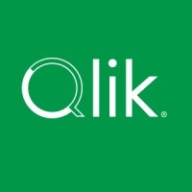

Oracle Data Integrator and Qlik Compose are competing in the data integration tools category. Based on user feedback, Qlik Compose appears to have the upper hand in user-friendliness and automation capabilities, while ODI is favored for its flexibility in integration.
Features: Oracle Data Integrator offers advanced integration strategies using Knowledge Modules, real-time data integration, and design-time automation, making it suitable for various data environments. Its flexibility and robustness support complex transformation and validation processes, ensuring high compatibility with diverse technologies. Qlik Compose is known for its user-friendly automation, data modeling, and real-time replication features, focusing on ease of use for efficient data warehouse creation without detailed coding.
Room for Improvement: Oracle Data Integrator needs improvements in user interface and error handling. Users find mastering the tool complex, with challenges in performance issues and external version control integration. Qlik Compose could enhance its ETL capabilities, scalability, and provide better handling of vast data volumes, along with improved documentation to assist users in utilizing its functionalities efficiently.
Ease of Deployment and Customer Service: Oracle Data Integrator is mainly deployed on-premises with some cloud support. Users report mixed experiences with technical support, especially when involving multiple Oracle products. Qlik Compose also primarily supports on-premises deployment and receives praise for efficient customer service, though a more proactive approach from technical support is occasionally sought.
Pricing and ROI: Oracle Data Integrator is seen as costly, with a complex licensing model but offers long-term ROI through its automation capabilities, particularly valuable for large-scale enterprise projects. Qlik Compose pricing is considered expensive, depending on data usage and licensing factors. Nevertheless, it provides good ROI when effectively implemented, benefiting from its strong automation and integration features.
| Product | Market Share (%) |
|---|---|
| Oracle Data Integrator (ODI) | 2.1% |
| Qlik Compose | 1.0% |
| Other | 96.9% |


| Company Size | Count |
|---|---|
| Small Business | 25 |
| Midsize Enterprise | 12 |
| Large Enterprise | 43 |
| Company Size | Count |
|---|---|
| Small Business | 3 |
| Midsize Enterprise | 3 |
| Large Enterprise | 6 |
Oracle Data Integrator (ODI) is a data integration software solution that provides a unified infrastructure to streamline data and application integration projects. It uses a powerful design approach to data integration, which separates the declarative rules from the implementation details. The solution is based on a unique ELT (Extract Load Transform) architecture, eliminating the need for a standalone ETL server and proprietary engine.
Oracle Data Integrator Features
ODI has many valuable key features. Some of the most useful ones include:
Oracle Data Integrator Benefits
There are many benefits to implementing ODI. Some of the biggest advantages the solution offers include:
Reviews from Real Users
Below are some reviews and helpful feedback written by PeerSpot users currently using the Oracle Data Integrator (ODI) solution.
Brian D., Business Process and Strategy Specialist Advisor at NTTData, says, “The Knowledge Module (KM) is my favorite feature of ODI. This is where I learned how to use variables to make jobs dynamic. I took that knowledge and created a KM that would go into iTunes and pull the sales of eBooks. Making something that is reusable, like a KM, is important to not only reduce build time but also maintenance in the future.”
Ashok S., Applications Support Manager at a marketing services firm, mentions, "The most valuable features of ODI are the ease of development, you can have a template, and you can onboard transfer very quickly. There's a lot of knowledge modules available that we can use. If you want to connect, for example, a Sibyl, SQL, Oracle, or different products, we don't have to develop them from scratch. They are available, but if it's not, we can go into the marketplace and see if there's a connector there. Having the connector available reduces the amount of hard work needed. We only have to put the inputs and outputs. In some of the products, we use there is already integration available for ODI, which is helpful."
Qlik Sense is a powerful business intelligence tool that offers a range of features to help organizations make faster and more informed decisions. Its primary use cases include operational and financial dashboards, self-service reporting, and centralized access to cross-functional reports. The solution is praised for its mobile platform, ease of use, data-sharing capabilities, and extensibility.
Qlik Sense has helped organizations improve data literacy, reduce time consumed in complex reports, and provide widely available MI to senior stakeholders. It also enables self-service analytics, improves data quality and governance, enhances collaboration, and reduces costs.
We monitor all Data Integration reviews to prevent fraudulent reviews and keep review quality high. We do not post reviews by company employees or direct competitors. We validate each review for authenticity via cross-reference with LinkedIn, and personal follow-up with the reviewer when necessary.